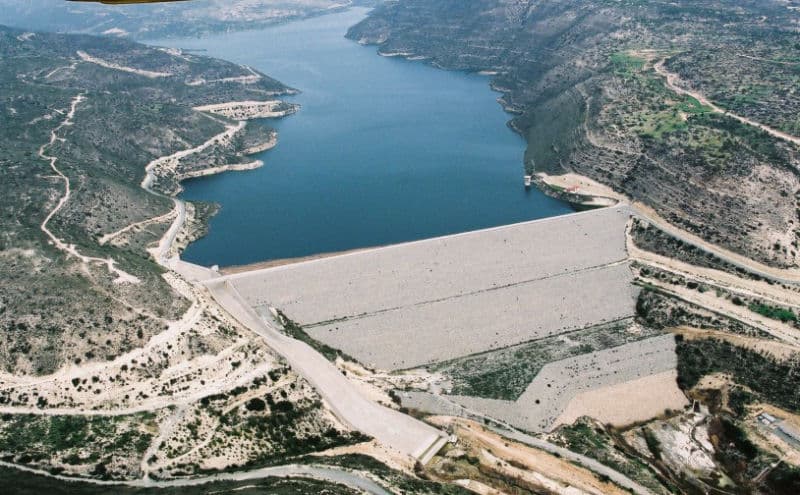The audit office’s report into the long catalogue of illegalities surrounding the operation of a fish farm in Trimiklini, in the Limassol district hills, is a damning indictment of the state services, which allowed systematic violations of the law for years. Not one of the many state services that had the power and legal obligation to stop the law-breaking by the company did anything, all of them turning a blind eye to the flagrant illegalities.
The company would have been left to carry on breaking the law undisturbed by the authorities, if the matter had not been taken up by several journalists who exposed the scam (a documentary was also made) and prompted the audit office to carry out its own investigation, the findings of which were released a few days ago. These findings reveal the comprehensive failure of the state authorities to enforce the law and protect the environment.
The water development department, town planning department, fisheries department, ministry of agriculture and the deputy ministry of tourism are among the state bodies that did nothing. The fish farm, which also includes unlicensed guest accommodation and restaurant and boasts the biggest man-made lake in Cyprus, was created by the illegal diversion of water from the Kouris River that resulted in preventing water flowing to the Saittas dam that has dried up. It is located in an environmentally protected zone in the Kouris River basin and has also used large areas of state land for its facilities.
According to the audit office’s report the company had secured a permit for a water reservoir, but it was built in the wrong location and ignored the shape and size specs of the permit. The fisheries department issued a fish farming licence to the company in 2011 without it having a building and planning permit. In 2013 it amended the licence without the necessary environmental impact report and in 2022 renewed it for another ten years.
In 2017 the town planning department rejected an application to change the licence issued to the company, to one of water reservoir and fish farm, citing the lack of an environmental impact assessment, but in 2020 granted the permit by exercising ‘special discretion.’ There was still no environmental impact study nor substantiation of the decision. In 2017 the agriculture minister issued an arbitrary decision granting a water extraction licence to the company, said the audit office report. It also pointed out the failure of the town planning department to issue a formal notice to the company for illegalities surrounding the construction of the reservoir and fish farm.
Speaking on radio Trito, the chairman of the House environment committee, Charalambos Theopemptou said that when representatives of the services involved had been invited to the committee it became apparent that there was rampant wrongdoing. The water development department had avoided responding to letters sent by the committee seeking answers on the matter. His explanation was that departments and ministers do favours, there is no monitoring of decisions and everything in the state services was “very lax.” All conditions to “justify the claim you have a corrupt state were there,” said Theopemptou.
No answers were given to deputies at the committee meeting by the officials invited to the meeting. They said they would return with answers, as they had done in two other cases, one being the road building in the Akamas, about which the agriculture minister admitted that the provisions of the plan approved had been violated. In this case the forestry department, which was in charge, blatantly ignored the provisions of the plans for the road.
What are the reasons for officials turning a blind eye to the law and violating terms for permits? Theopemptou wondered whether an official was doing a favour, took a bribe or had orders from above to allow the law-breaking. What is astonishing is that all the services dealing with the fish farm blatantly disregarded the law, a pattern that raises suspicions they were receiving orders from above. In the case of Akamas it was the forestry department that oversaw the road project.
This failure of the system to ensure respect for the law is a clear case of corruption, regardless of whether officials were doing favours, taking bribes or following orders from politicians. In the latter case, an honest official with integrity would have refused to follow the orders and explained in writing the reason for doing so, something that rarely happens in the state service. Professional integrity, one of the main bulwarks against corruption, is not a value of the public service, probably because listening to politicians is more beneficial to career advancement.
The case of Kouris offers an opportunity to tackle the malaise. An investigative committee should be set up to go through all government paperwork related to the fish farm and the public employees, who signed off on the law-breaking, or failed to act, should be charged with corruption or dereliction of duties. If half a dozen public employees are sacked for these offences, the rest may feel obliged to do their job with more honesty and be less willing to obey the orders of corrupt politicians.
For this to happen, however, the investigation must be carried out by the attorney-general’s office and not the toothless authority against corruption as seems to be the plan.







Click here to change your cookie preferences